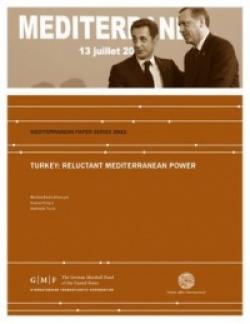Turkey: Reluctant Mediterranean Power
Geographically, Turkey is undeniably an actor of the Mediterranean. In the 20th century, however, Turkey shied away from being a player in the Mediterranean. In recent years this seems to be changing. Over the last decade, Turkish foreign policy has been going through a period of profound flux and reinvigoration. In view of this, this set of papers explores a number of inter-linked questions. First, does the transformation in Turkish foreign policy mean that Turkey is or has become a power of and in the Mediterranean today? If so, of what does that power consist? More specifically, how does Turkey’s power in the region compare and contrast with the European Union’s policies toward the Mediterranean, notably the European Neighbourhood Policy (ENP) and the Euro-Mediterranean Partnership (EMP) - Union for the Mediterranean (UfM)? Looking across the Atlantic, instead, are there U.S.-inspired causes of Turkey’s new-found role in the Mediterranean and what are its implications for the transatlantic alliance and for Turkey’s prospects of joining the EU? In order to explore these questions, three papers build upon and speak to one another.
-
Details
Washington, German Marshall Fund of the United States, 2011, 63 p. -
Issue
10
1. Turkey: Reluctant Mediterranean Power. An Introductory Note, Nathalie Tocci
2. Turkey as a "Mediterranean Power", Meliha Benli Altunisik
3. Comparing the Neighborhood Policies of Turkey and the EU in the Mediterranean, Kemal Kirisci
4. Filling the Vacuum: A Transatlantic View of Turkey in the Mediterranean, Nathalie Tocci
Topic
Tag
Related content
-
Ricerca27/12/2013
Cooperation in the Mediterranean and the Middle East
leggi tutto



